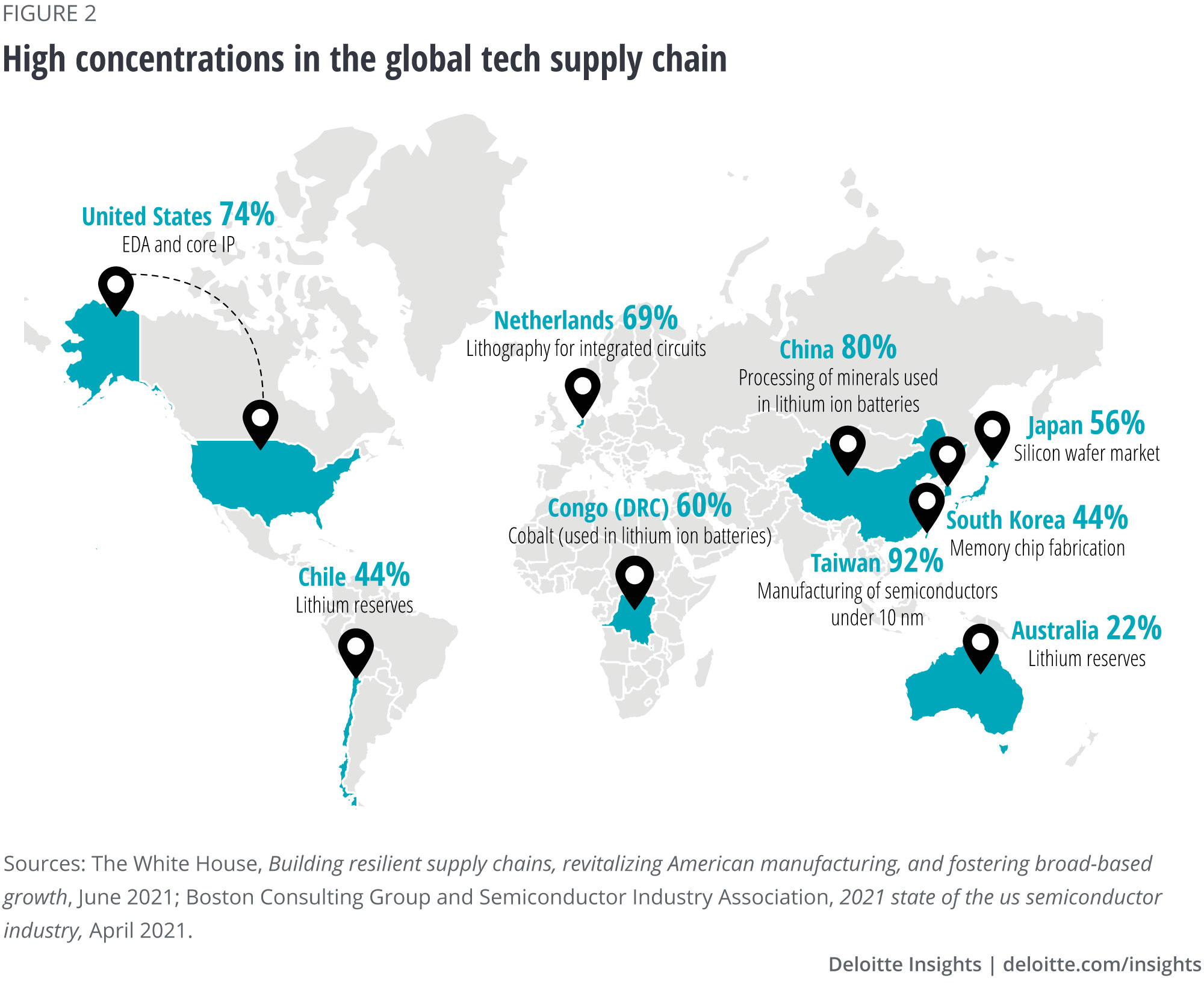China's Economy: Assessing The Risks Of Rising Tariffs On Exports

Table of Contents
Impact on Key Export Sectors
Rising tariffs on Chinese exports pose a significant threat to several key sectors, impacting both domestic production and global trade dynamics. The consequences extend beyond simple price increases, affecting employment, investment, and technological advancement.
Manufacturing and Technology
China's manufacturing and technology sectors are particularly vulnerable to rising tariffs. These sectors are major contributors to China's GDP and employment, and increased tariffs directly undermine their competitiveness.
- Reduced competitiveness in global markets: Higher tariffs make Chinese goods more expensive compared to competitors, leading to reduced market share and sales. This is especially true in price-sensitive markets.
- Potential job losses within export-oriented industries: Decreased demand for Chinese products forces manufacturers to cut production, potentially leading to significant job losses, particularly in export-processing zones.
- Increased pressure on manufacturers to relocate production outside of China: To avoid tariffs, many companies may shift their manufacturing bases to countries with preferential trade agreements, impacting China's economic growth and employment. This includes a potential shift towards countries like Vietnam or Mexico.
- Slowdown in technological advancement due to reduced investment: Reduced profitability due to tariffs may lead to decreased investment in research and development, hindering technological innovation and long-term competitiveness. This impacts both domestic technological advancement and global technology supply chains.
Agricultural Exports
China's agricultural sector is also significantly impacted by rising tariffs. The implications extend beyond decreased exports, affecting rural communities and food security.
- Decreased demand for Chinese agricultural goods: Higher tariffs reduce the competitiveness of Chinese agricultural products in international markets, leading to lower export volumes and revenue.
- Lower farmer incomes and potential rural unrest: Reduced export revenue translates to lower incomes for farmers, potentially causing social and economic instability in rural areas.
- Increased reliance on domestic consumption, potentially straining the domestic market: To compensate for reduced exports, China may need to rely more on its domestic market, potentially leading to price fluctuations and market instability.
- Opportunities for competing agricultural exporters: Rising tariffs on Chinese agricultural goods create opportunities for competing exporters from other countries, reshaping global agricultural trade patterns.
Economic Consequences for China
The economic consequences of rising tariffs on China's exports are far-reaching and potentially destabilizing. The impact extends beyond immediate export revenue, affecting various facets of the Chinese economy.
GDP Growth Slowdown
Rising tariffs directly contribute to a slowdown in China's GDP growth through multiple channels.
- Reduced export revenue impacting overall GDP growth: Reduced exports directly decrease China's GDP, especially if the affected sectors are significant contributors to the national economy.
- Increased inflationary pressures due to higher import costs: Retaliatory tariffs or reduced access to imported inputs can cause inflation, impacting consumer spending and overall economic activity.
- Potential currency devaluation leading to further economic instability: A decrease in exports can lead to a weakening of the Chinese Yuan, further impacting trade and investment.
- Decreased foreign direct investment (FDI): Uncertainty and decreased profitability due to tariffs may deter foreign investment, hampering economic growth and technological advancement.
Social and Political Implications
The economic slowdown caused by rising tariffs can have significant social and political repercussions within China.
- Increased unemployment leading to social unrest: Job losses in export-oriented sectors can lead to widespread unemployment, potentially triggering social unrest and instability.
- Pressure on the government to implement unpopular economic policies: The government may face pressure to implement unpopular economic policies to mitigate the impact of tariffs, potentially leading to social and political tensions.
- Heightened political tensions both domestically and internationally: Rising tariffs can exacerbate existing political tensions between China and other countries, leading to further trade disputes and international conflicts.
- Potential for reduced social stability: A combination of economic hardship, unemployment, and political tensions can negatively impact social stability within China.
Global Implications of Rising Tariffs on China Exports
The impact of rising tariffs on Chinese exports is not limited to China; it has far-reaching global implications, reshaping trade dynamics and affecting consumers worldwide.
Shifting Global Trade Dynamics
Increased tariffs on Chinese goods necessitate a restructuring of global supply chains and trade relationships.
- Restructuring of global supply chains: Companies may seek alternative suppliers outside China, leading to a reshuffling of global manufacturing and production networks.
- Increased reliance on alternative suppliers: Countries like Vietnam, Mexico, and India may benefit from the shift in production, potentially altering the global geopolitical landscape.
- Potential trade wars and retaliatory tariffs: Rising tariffs can spark retaliatory measures from other countries, escalating trade tensions and harming global economic growth. This can lead to a global trade war scenario.
- Regional economic imbalances: The shift in production may lead to regional economic imbalances, potentially causing economic disruption in some areas and benefiting others.
Impact on Global Consumers
Consumers worldwide will likely experience the effects of rising tariffs on Chinese goods through higher prices and reduced access to products.
- Higher prices for goods previously sourced from China: Increased tariffs translate to higher prices for consumers for a wide range of goods previously sourced from China.
- Reduced access to certain products: Some goods may become less available or even unavailable due to disruptions in supply chains and increased production costs.
- Disruptions in global supply chains impacting product availability: Changes in supply chains can lead to delays and shortages of various products, impacting businesses and consumers alike.
- Increased inflation across various sectors: Higher prices for imported goods can contribute to broader inflation, impacting the cost of living for consumers worldwide.
Conclusion
Rising tariffs on China's exports pose significant risks to the Chinese economy and the global trading system. The impact extends far beyond simply reduced export revenue, affecting various sectors, employment levels, and potentially leading to social and political instability within China. The global implications include shifts in supply chains, increased prices for consumers, and potential escalations of trade tensions. Understanding the multifaceted consequences of rising tariffs on China exports is crucial for navigating the complexities of the global economy. Further research and analysis are needed to fully grasp the long-term effects of this trend on China's economic future and global trade. To stay informed on the impact of rising tariffs on China exports and its implications, continue to monitor reputable economic news sources and analytical reports.

Featured Posts
-
 Will Google Be Broken Up Analyzing The Current Landscape
Apr 22, 2025
Will Google Be Broken Up Analyzing The Current Landscape
Apr 22, 2025 -
 A Timeline Of Karen Reads Murder Trials
Apr 22, 2025
A Timeline Of Karen Reads Murder Trials
Apr 22, 2025 -
 Hegseths Military Plans Disclosed In Signal Chat
Apr 22, 2025
Hegseths Military Plans Disclosed In Signal Chat
Apr 22, 2025 -
 The Unsung Heroes Of Business The Value Of Middle Managers
Apr 22, 2025
The Unsung Heroes Of Business The Value Of Middle Managers
Apr 22, 2025 -
 Trumps Economic Agenda Who Bears The Cost
Apr 22, 2025
Trumps Economic Agenda Who Bears The Cost
Apr 22, 2025
